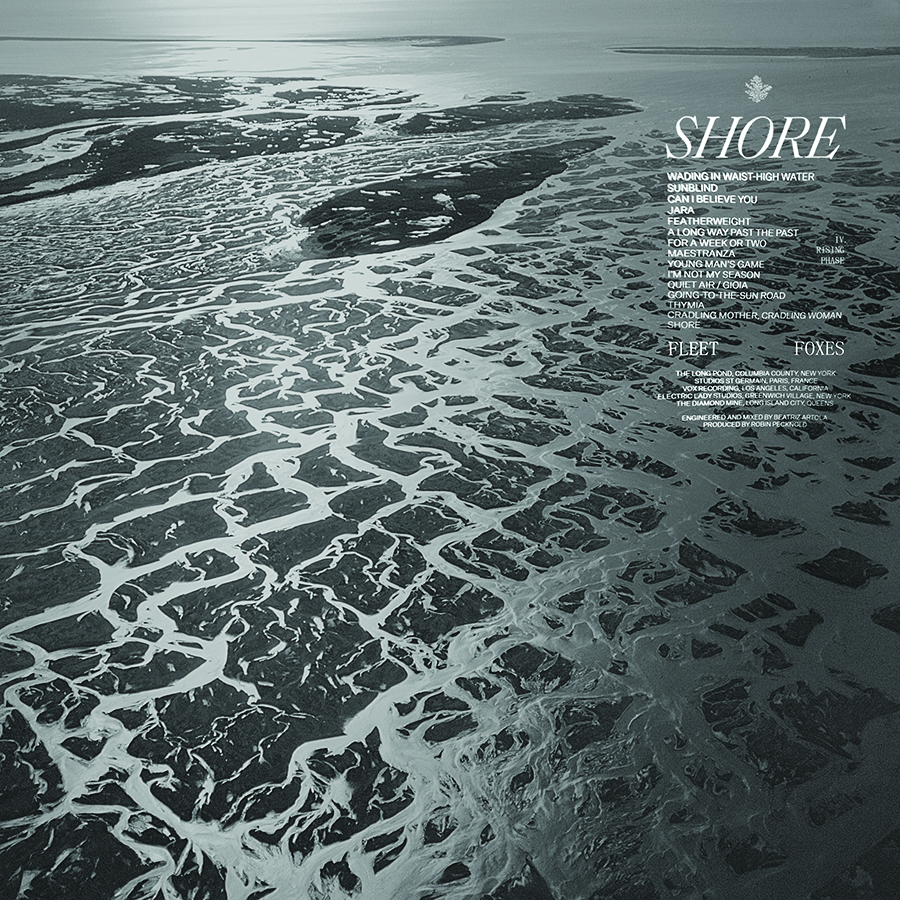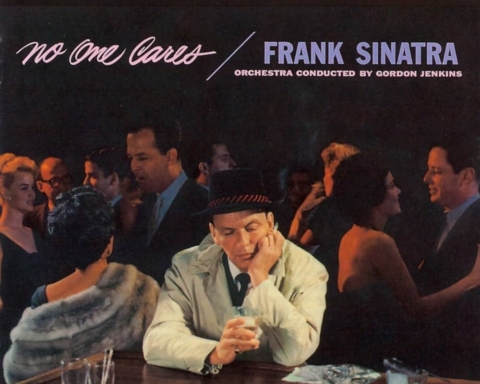By Matt Villanueva, Features Editor
On Monday, Sept. 21, the indie-folk band, “Fleet Foxes” released a surprise album into the world on the autumnal equinox. Their second project following a six-year hiatus titled “Shore,” Fleet Foxes traditional autumnal-acoustic sound is present more than ever.
Robin Pecknold, the lead singer and songwriter of the band, describes their music as a “coming of age story,” according to Pitchfork. From their free-flowing folk found in their self-titled album in 2008, to their lyrically heavy album, “Helplessness Blues,” in 2011 leading to a six-year hiatus which was followed by their third studio album describing a distorted mind, “Crack-Up.” While “Shore” may not be as lyrically poetic as its predecessors, one cannot deny the simple and beautiful aesthetic which envelops all 55 minutes of the album.
Rather than Pecknold’s voice, the sub-hour-long album starts off with the alto-voice of Awade Akhere, a senior at the University of Oxford, in “Wading in the Waist-High Water.” The two-minute introduction from Akhere pairs alongside a harmonizing acoustic guitar. The anteceded song flows flawlessly into subsequent song, “Sunblind” with soft horns and a harp reintroducing the world back to Pecknold’s soft tenor.
Their inspirations are evident throughout the album. In “Sunblind,” Pecknold references a few of their heroes, Elliot Smith, Otis Redding and Curtis Mayfield. David Berman and the late John Prine are also mentioned scarcely through the album.
Rather than the prosaic angst Fleet Foxes are used to surrendering, Pecknold sings of gratitude throughout the entire project. Pecknold described the process of writing this album, “(It is about) circling around the theme of fighting off life’s dissonant harshness with its everyday wonder, or at least finding the momentary balance between them.”
In “A Long way Past the Past,” Pecknold solitarily harmonizes in the chorus, “We were left alone, we were proud of our pain.” He reiterates his message in the bridge, “It all got dimmer, with each passing step, and I need you with me.” He concludes the song, “That’s that, we’re a long way from the past, I’ll be better in a year or two.”
While the despair and dread from their previous albums not absent from “Shore,” it is acknowledged and tattered, leading to a beautifully unapologetic ode to acceptance in the next song “For a Week or Two.”
Backed by only the bass clef of a piano and bass drum, Pecknold sings, “You’re close to some surrender, you can feel it at your feet, and later on remember you could eat. Know the door is open, know that I miss you.”
Fleet Foxes reinforce their joy of life, throughout the album, or as Matthew Straus, editor for Rolling Stone calls it, “joy in spite, or because of death.”
In “Quiet Air / Gioia,” Pecknold’s chorus repeats, “Oh Devil walk by, I never want to die.” Straus describes this line, “It’s a consciously excessive declaration that does nothing to obscure our greatest fear, earnest and vulnerable in its very willingness to make the admission.”
The title track, “Shore,” rounds out the album with the acceptance of death. “Maybe I stayed a little long could be, I needed shade on my feet. Can’t divide what’s memory and what’s a dream.” He continues, accompanied by a tenor saxophone and a snare drum “And ‘fore I forget me, I want to record. While I see it all.”
As a tenor sax and cymbal ride into the concluding references to their musical heroes John Prine and Eliot Smith. The final verse of the albums chants, “I remember hoping I’d remember nothing, now I hope I’m holding onto something. Now the quarter moon is out.” A C-chord rings for the final 30 seconds as the album dies out.
Fleet Foxes new album is a step forward in their journey as a band. As they accept their morbidity, they also make sure to indicate the small beauties found in everyday life with their delicate instrumentals to coincide with their harrowing harmonies.
villanjv18@bonaventure.edu







